New Scientist covers the latest developments in science and technology that will impact your world. New Scientist employs and commissions the best writers in their fields from all over the world. Our editorial team provide cutting-edge news, award-winning features and reports, written in concise and clear language that puts discoveries and advances in the context of everyday life today and in the future.
Elsewhere on New Scientist
War of nerves • The nervous system offers a new – and potentially cheap – route to treating cancer
New Scientist
Not dancing, but fighting
A global problem
Europe’s forests are in crisis • Extreme weather, pests and overharvesting are turning forest carbon sinks into carbon sources across Europe, undermining a crucial part of countries’ net-zero plans, finds Madeleine Cuff
Sauropod dinosaur’s last meal reveals that it didn’t chew
Why do we follow rules? • The discovery that around a quarter of people will follow rules unconditionally could have implications for how we create laws, finds Helen Thomson
Dead Sea Scrolls analysis may force rethink of ancient Jewish history
Massaging the neck and face could help flush out brain waste
Could computers run on gravity? • A way to identify when information has been changed by manipulating space-time could lay the foundation for a new type of computer, finds Karmela Padavic-Callaghan
Worms make tentacle-like towers to move around
Is ADHD on the rise? No – but that’s not the whole story • There is no evidence of an increase among children, but there are big differences between countries, finds Michael Le Page
How our brains sort imagination from reality
Retinal implant helps blind mice see again
Tools helped language evolve • Advances in technology and cultural practices led our ancestors to develop new ways of explaining concepts to others, finds Michael Marshall
Highly destructive termite hybrids may pose global threat
We may have discovered the first-ever stars powered by dark matter
There could be a surprising upside to losing coral reefs
Quantum computers take on physics • Computer simulations are pushing the boundaries of what we can learn about interactions that happen inside particle colliders, finds Karmela Padavic-Callaghan
Rivers are leaking ancient carbon into the atmosphere
Infant antibody treatment may best protect against RSV
The moon may be full of platinum • Mining on the moon could be technically easier than on asteroids, but more legally challenging
Crafty cockatoos find new way to quench their thirst
Bodily patriarchy • From Fallopian tubes to the G-spot, long-dead men have marked their territory when it comes to women’s bodies, says Adam Taor
Notes from space-time • The big picture The universe is still there to be understood, despite brutal new cuts to US science budgets. But the damage to future research will be huge, says Chanda Prescod-Weinstein
Bloom or bust
Death of the private • How did we lose the sense that some parts of life should be off-limits rather than open to commodification? Peter Hoskin explores an insightful take
Going nuclear • The history of the atomic age gets a welcome rework in this book, which includes more about the role of women, finds George Bass
New Scientist recommends
The sci-fi column • Future present Time travel is real, and a young woman is hired as a “bridge” to help a naval commander adapt to the 21st century after he is snatched from death in 1847. Find out how they fare in the fabulous The Ministry of Time, says Emily H. Wilson
Your letters
Cancer’s nerve centre • The discovery that nerve cells help tumours grow and spread is leading to...

 Dec 06 2025
Dec 06 2025
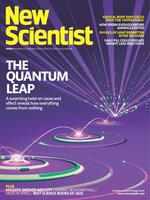 Nov 29 2025
Nov 29 2025
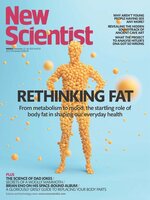 Nov 22 2025
Nov 22 2025
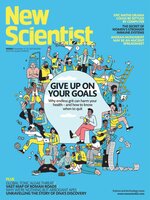 Nov 15 2025
Nov 15 2025
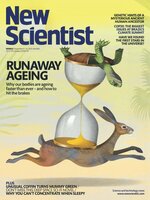 Nov 08 2025
Nov 08 2025
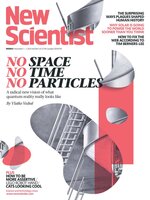 Nov 01 2025
Nov 01 2025
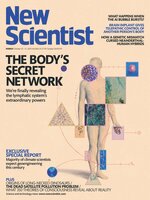 Oct 25 2025
Oct 25 2025
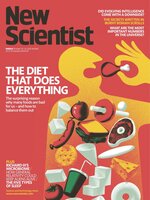 Oct 18 2025
Oct 18 2025
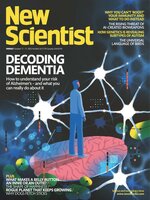 Oct 11 2025
Oct 11 2025
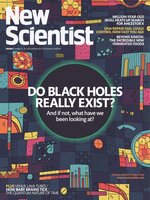 Oct 04 2025
Oct 04 2025
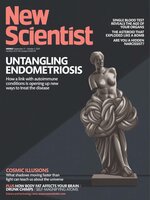 Sep 27 2025
Sep 27 2025
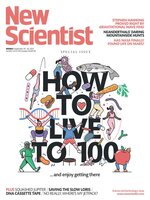 Sep 20 2025
Sep 20 2025
 Sep 13 2025
Sep 13 2025
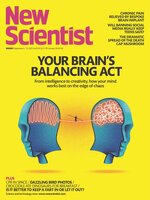 Sep 06 2025
Sep 06 2025
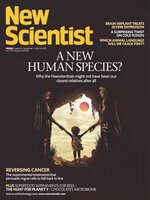 Aug 30 2025
Aug 30 2025
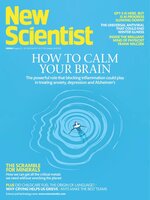 Aug 23 2025
Aug 23 2025
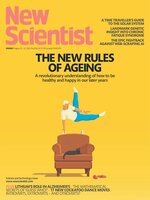 Aug 16 2025
Aug 16 2025
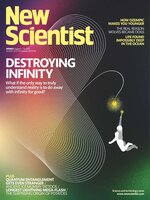 Aug 09 2025
Aug 09 2025
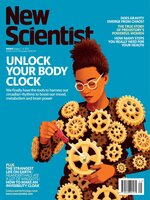 Aug 02 2025
Aug 02 2025
 Jul 26 2025
Jul 26 2025
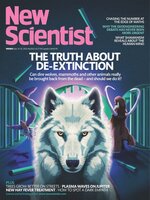 Jul 19 2025
Jul 19 2025
 Jul 12 2025
Jul 12 2025
 Jul 05 2025
Jul 05 2025
 Jun 28 2025
Jun 28 2025